Аркадий Островский
[b]Arkady Ostrovsky[/b] (25 [i]{O.S. 12}[/i] February 1914, Syzran, Simbirsk Governorate, Russian Empire — 18 September 1967, Sochi, USSR) was a Soviet composer and songwriter of Jewish descent, an Honored Art Practitioner of the RSFSR (1965), and uncle of American piano technician [url=https://discogs.com/artist/6954137]Alexander Ostrovsky[/url] (1937—2015). He authored numerous critically acclaimed songs for leading Soviet singers like [url=https://discogs.com/artist/805293]Muslim Magomaev[/url], [url=https://discogs.com/artist/716097]Iosif Kobzon[/url], [url=https://discogs.com/artist/776846]Oleg Anofriev[/url], [url=https://discogs.com/artist/1149969]Valery Obodzinsky[/url], and [url=https://discogs.com/artist/820386]Edyta Piecha[/url], including the 1965 non-lexical vocalize [i]I'm Glad Cause I'm Finally Coming Back Home[/i] sung by [url=https://discogs.com/artist/811762]Eduard Khil[/url], which went viral on YouTube in 2011 as a "Trololo" meme. Arkady Ostrovsky died at only 53 from a severe perforated ulcer in a Sochi hospital on the Black Sea coast, where he attended an inaugural opening ceremony for [i]Red Gilliflower[/i] ("Красная гвоздика") music festival, and buried in Moscow. In February 2004, on his 90th anniversary, Ostrovsky's memorial star was inaugurated at the [i]Star Square[/i] in front of [url=https://discogs.com/label/663157]"Russia" Concert Hall[/url]. Born into a prosperous Jewish family, Abram was the son of Ilya Ilyich Ostrovsky, a music shop owner, piano tuner, and chairman of the local Jewish Assembly in Syzran. His elder brother, Rafail Ilyich Ostrovsky (1905—1989), also became a keyboard instruments technician. As Abram grew older, he adopted a more Slavonic name, "Arkadiy," to avoid antisemitic discrimination. The family relocated to Saint Petersburg (then Petrograd) circa 1927, where Arkady's father became chief piano technician at [url=https://discogs.com/label/1513139]Leningrad Conservatory[/url]. Ostrovsky studied as a blacksmith at a professional technical school before pursuing music; by 1930, he enrolled in the Central Musical College. Between 1935 and the beginning of the [i]Great Patriotic War[/i] (WWII Eastern Front) in July 1941, Arkady Ostrovsky played accordion in [url=https://discogs.com/artist/4759377]Emil Kemper[/url]'s [url=https://discogs.com/artist/4721613]Leningrad Jazz Orchestra[/url]. Ostrovsky spent most of the wartime in Novosibirsk, where he began composing. From 1940 to 1947, he served as a pianist and accordionist in [url=https://discogs.com/artist/807822]Leonid Utyosov[/url]'s renowned [url=https://discogs.com/artist/1495196]Variety Jazz Orchestra[/url], often arranging scores for the ensemble. In 1956, Arkady Ostrovsky relocated to Moscow. He gained nationwide acclaim as a songwriter by the early 1960s, particularly renowned for children's songs. Like many other musicians, writers, and cartoonists deemed by the Soviet government as potentially "unreliable" for ideological reasons — or Jewish origins, in Arkady's case — Ostrovsky proliferated in children's art with fewer restrictions and censorship than any adult-oriented genre. Many of his songs became staples of Russian-speaking kids' vocal repertoire, such as [i]May There Always Be Sunshine[/i] ("Пусть всегда будет солнце") and [i]Tired Toys are Sleeping[/i] ("Спят усталые игрушки") lullaby on [url=https://discogs.com/artist/2396053]Zoya Petrova[/url]'s lyrics — an opening theme from a long-running Soviet-Russian TV program [i]Good Night, Little Ones![/i] ("Спокойной ночи, малыши!"). According to later interviews with the composer's son, Russian scientist [url=https://discogs.com/artist/13917220]Mikhail Arkadyevich Ostrovsky[/url], his accidental posthumous viral hit, [i]I'm Glad As I'm Finally Coming Back Home[/i] ("Я очень рад, ведь я наконец возвращаюсь домой"), also known as simply [i]Vocalize[/i] ("Вокализ"), was written on a bet with Ostrovsky's close friend and collaborator, poet [url=https://discogs.com/artist/805322]Lev Oshanin[/url]. After one of their arguments, frustrated Arkady composed the tune to prove he could make a great song without any lyrics. With its uplifting and rollicking melody, Ostrovsky commissioned [url=https://discogs.com/artist/811762]Eduard Khil[/url] to record the song with the [url=https://discogs.com/artist/1055021]All-Union Radio Variety Orchestra[/url]. However, conductor [url=https://discogs.com/artist/1712509]Yury Silantiev[/url] objected, insisting the song needed proper lyrics. He suggested poet [url=https://discogs.com/artist/820400]Vadim Semernin[/url], with whom Ostrovsky previously collaborated on [url=https://discogs.com/artist/817250]Maya Kristalinskaya[/url]'s song [i]Stork[/i] ("Аист"). The resulting text about Wild West cowboy didn't pass ideological censorship, and the song remained a "pure" acapella; the only remnant of Severnin's unused lyrics was in its full title.
Releases
-
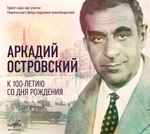 К 100-летию Со Дня Рождения
К 100-летию Со Дня Рождения
-
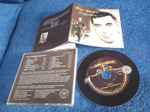 Песни Аркадия Островского
Песни Аркадия Островского
-
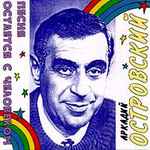 Песня Остается С Человеком
Песня Остается С Человеком
-
 Избранные Песни А. Островского
Избранные Песни А. Островского
-
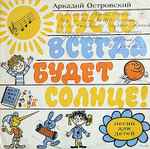 Пусть Всегда Будет Солнце (Песни Для Детей)
Пусть Всегда Будет Солнце (Песни Для Детей)
-
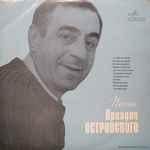 Избранные Песни (Пластинка 2)
Избранные Песни (Пластинка 2)
-
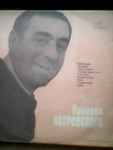 Избранные Песни (Пластинка 1)
Избранные Песни (Пластинка 1)
-
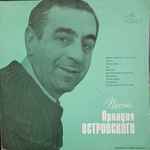 Избранные Песни (Пластинка 3)
Избранные Песни (Пластинка 3)
-
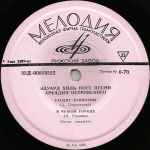 Эдуард Хиль Поет Песни Аркадия Островского
Эдуард Хиль Поет Песни Аркадия Островского
-
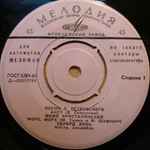 Песни А. Островского
Песни А. Островского
-
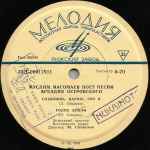 Муслим Магомаев Поет Песни Аркадия Островского
Муслим Магомаев Поет Песни Аркадия Островского
-
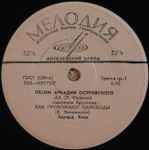 Песни Аркадия Островского
Песни Аркадия Островского
-
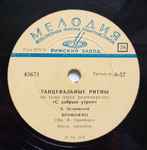 Танцевальные Ритмы На Темы Песен Радиопередач "С Добрым Утром"
Танцевальные Ритмы На Темы Песен Радиопередач "С Добрым Утром"
-
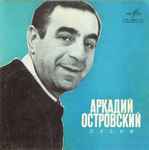 Песни
Песни
-
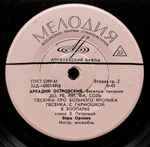 Веселые Песенки
Веселые Песенки
-
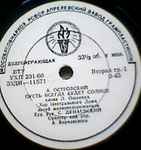 Пусть Всегда Будет Солнце / Всюду С Нами Вместе Дружба
Пусть Всегда Будет Солнце / Всюду С Нами Вместе Дружба
-
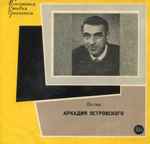 Песни А. Островского На Стихи Л. Ошанина
Песни А. Островского На Стихи Л. Ошанина
-
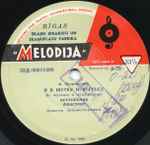 Из Музыки К Кинофильму «И В Шутку И Всерьез»
Из Музыки К Кинофильму «И В Шутку И Всерьез»
-
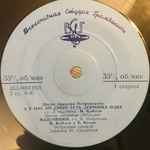 Песни Аркадия Островского
Песни Аркадия Островского
-
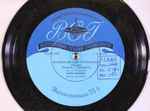 Песенки Аркадия Островского
Песенки Аркадия Островского
-
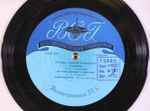 Песенки Аркадия Островского
Песенки Аркадия Островского
-
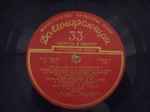 Песни Аркадия Островского
Песни Аркадия Островского
-
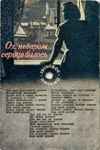 Ох, Недаром Сердце Билось
Ох, Недаром Сердце Билось
-
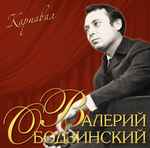 Карнавал
Карнавал
-
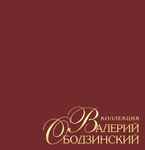 Коллекция
Коллекция
-
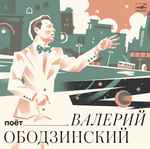 Поёт Валерий Ободзинский
Поёт Валерий Ободзинский
-
 Юбилейный Концерт
Юбилейный Концерт
-
 Музыка Оттепели (Песни 60-х)
Музыка Оттепели (Песни 60-х)
-
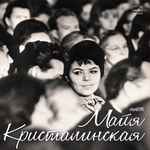 Поёт Майя Кристалинская
Поёт Майя Кристалинская
-
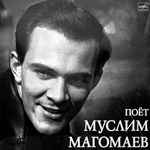 Поёт Муслим Магомаев
Поёт Муслим Магомаев
-
 Мой Путь
Мой Путь
-
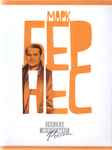 Великие Исполнители России
Великие Исполнители России
-
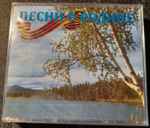 Песни О Родине
Песни О Родине
-
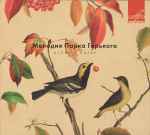 Осень В Парке
Осень В Парке
-
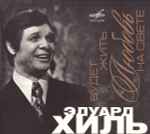 Будет Жить Любовь На Свете
Будет Жить Любовь На Свете
-
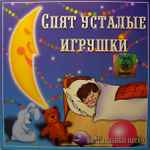 Спят Усталые Игрушки
Спят Усталые Игрушки
-
 Непридуманные Истории • Коллекционное Издание
Непридуманные Истории • Коллекционное Издание
-
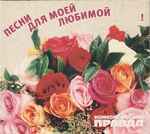 Песни Для Моей Любимой
Песни Для Моей Любимой
-
 Mashups By Candlelight
Mashups By Candlelight
-
 I Am Very Glad, Because I'm Finally Returning Back Home (Trololo)
I Am Very Glad, Because I'm Finally Returning Back Home (Trololo)
-
 Фея Добрых Снов
Фея Добрых Снов
-
 Karate
Karate
-
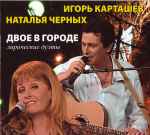 Двое в городе (Лирические дуэты)
Двое в городе (Лирические дуэты)
-
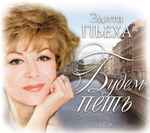 Будем Петь
Будем Петь
-
 А Нам Все Равно
А Нам Все Равно
-
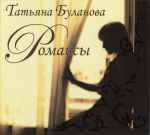 Романсы
Романсы
-
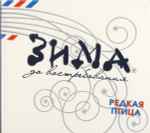 Зима До Востребования
Зима До Востребования
-
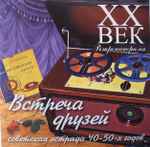 Встреча Друзей. Советская Эстрада 40-50-х Годов
Встреча Друзей. Советская Эстрада 40-50-х Годов
-
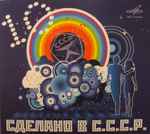 Сделано в СССР 10
Сделано в СССР 10
-
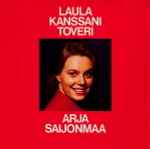 Laula Kanssani Toveri
Laula Kanssani Toveri
 К 100-летию Со Дня Рождения
К 100-летию Со Дня Рождения
 Песни Аркадия Островского
Песни Аркадия Островского
 Песня Остается С Человеком
Песня Остается С Человеком
 Избранные Песни А. Островского
Избранные Песни А. Островского
 Пусть Всегда Будет Солнце (Песни Для Детей)
Пусть Всегда Будет Солнце (Песни Для Детей)
 Избранные Песни (Пластинка 2)
Избранные Песни (Пластинка 2)
 Избранные Песни (Пластинка 1)
Избранные Песни (Пластинка 1)
 Избранные Песни (Пластинка 3)
Избранные Песни (Пластинка 3)
 Эдуард Хиль Поет Песни Аркадия Островского
Эдуард Хиль Поет Песни Аркадия Островского
 Песни А. Островского
Песни А. Островского
 Муслим Магомаев Поет Песни Аркадия Островского
Муслим Магомаев Поет Песни Аркадия Островского
 Песни Аркадия Островского
Песни Аркадия Островского
 Танцевальные Ритмы На Темы Песен Радиопередач "С Добрым Утром"
Танцевальные Ритмы На Темы Песен Радиопередач "С Добрым Утром"
 Песни
Песни
 Веселые Песенки
Веселые Песенки
 Пусть Всегда Будет Солнце / Всюду С Нами Вместе Дружба
Пусть Всегда Будет Солнце / Всюду С Нами Вместе Дружба
 Песни А. Островского На Стихи Л. Ошанина
Песни А. Островского На Стихи Л. Ошанина
 Из Музыки К Кинофильму «И В Шутку И Всерьез»
Из Музыки К Кинофильму «И В Шутку И Всерьез»
 Песни Аркадия Островского
Песни Аркадия Островского
 Песенки Аркадия Островского
Песенки Аркадия Островского
 Песенки Аркадия Островского
Песенки Аркадия Островского
 Песни Аркадия Островского
Песни Аркадия Островского
 Ох, Недаром Сердце Билось
Ох, Недаром Сердце Билось
 Карнавал
Карнавал
 Коллекция
Коллекция
 Поёт Валерий Ободзинский
Поёт Валерий Ободзинский
 Юбилейный Концерт
Юбилейный Концерт
 Музыка Оттепели (Песни 60-х)
Музыка Оттепели (Песни 60-х)
 Поёт Майя Кристалинская
Поёт Майя Кристалинская
 Поёт Муслим Магомаев
Поёт Муслим Магомаев
 Мой Путь
Мой Путь
 Великие Исполнители России
Великие Исполнители России
 Песни О Родине
Песни О Родине
 Осень В Парке
Осень В Парке
 Будет Жить Любовь На Свете
Будет Жить Любовь На Свете
 Спят Усталые Игрушки
Спят Усталые Игрушки
 Непридуманные Истории • Коллекционное Издание
Непридуманные Истории • Коллекционное Издание
 Песни Для Моей Любимой
Песни Для Моей Любимой
 Mashups By Candlelight
Mashups By Candlelight
 I Am Very Glad, Because I'm Finally Returning Back Home (Trololo)
I Am Very Glad, Because I'm Finally Returning Back Home (Trololo)
 Фея Добрых Снов
Фея Добрых Снов
 Karate
Karate
 Двое в городе (Лирические дуэты)
Двое в городе (Лирические дуэты)
 Будем Петь
Будем Петь
 А Нам Все Равно
А Нам Все Равно
 Романсы
Романсы
 Зима До Востребования
Зима До Востребования
 Встреча Друзей. Советская Эстрада 40-50-х Годов
Встреча Друзей. Советская Эстрада 40-50-х Годов
 Сделано в СССР 10
Сделано в СССР 10
 Laula Kanssani Toveri
Laula Kanssani Toveri